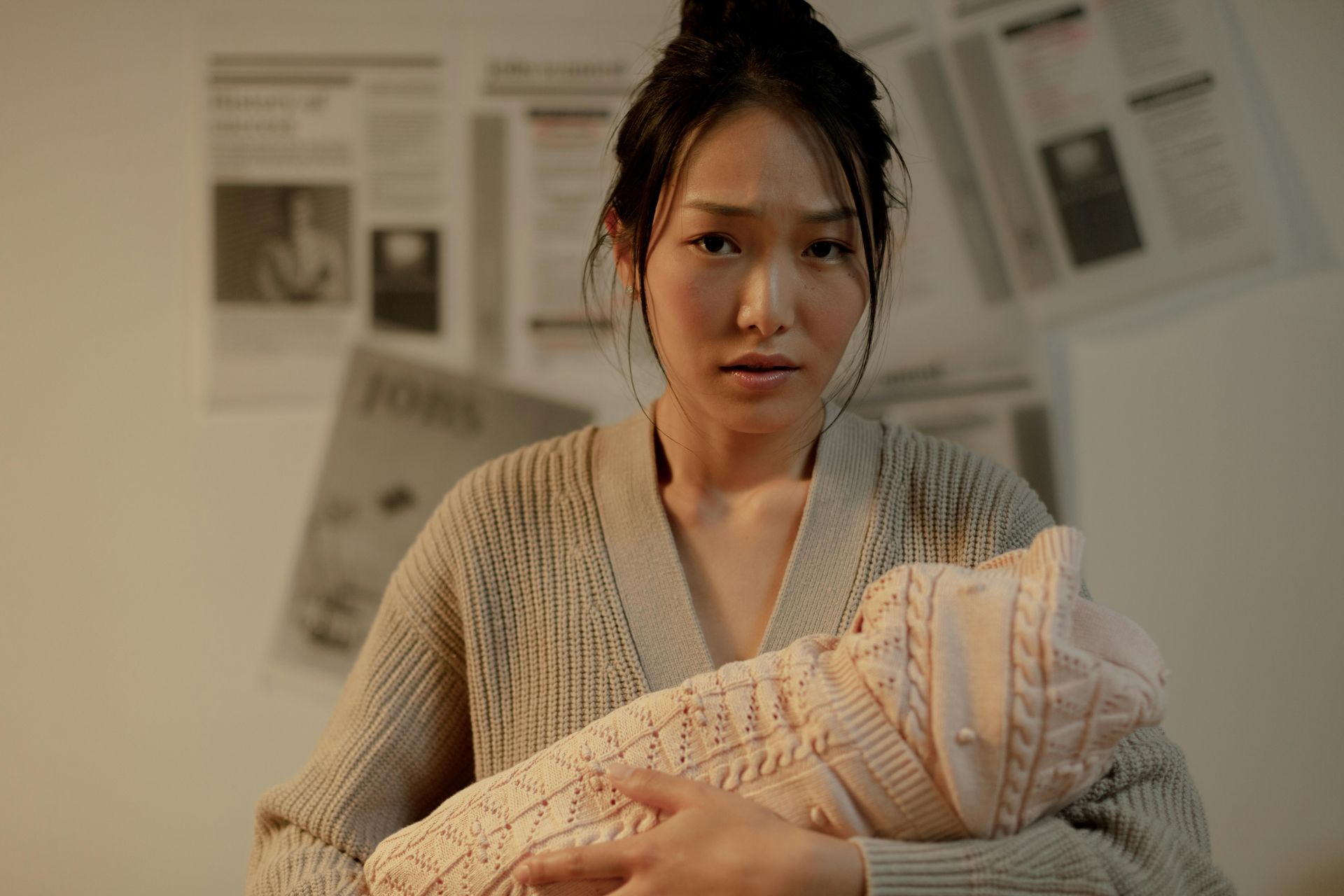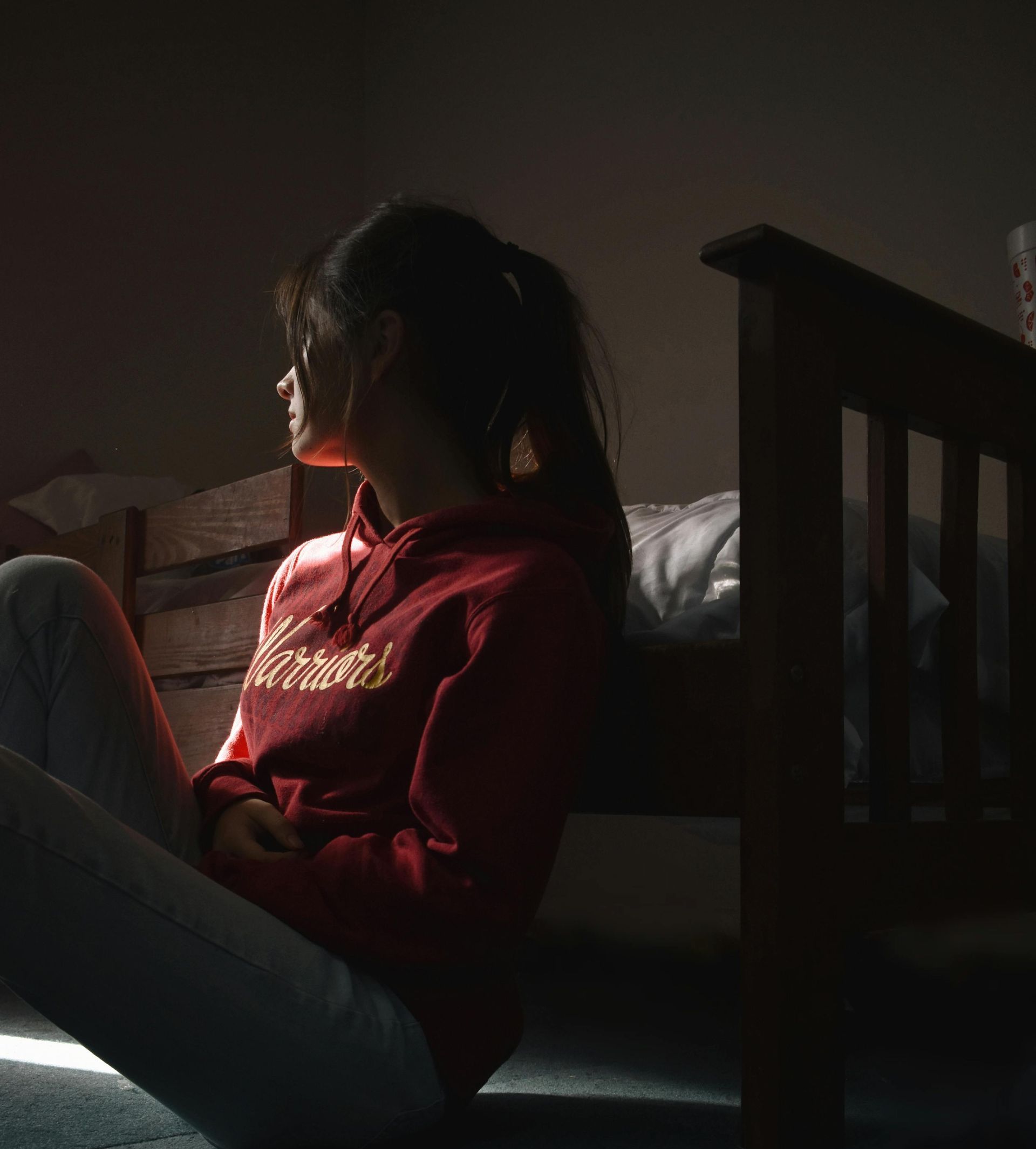Depression Treatment in Toronto: Find Relief From Your Symptoms
Navigating Depression Symptoms: Find the Right Treatment in Toronto
We all have bad days and feel down from time to time. It is normal to feel sad when something bad happens to us, but this sadness does not often impact our ability to function and goes away on its own. However, with depression, these feelings are different from having a bad day.
Depression symptoms can be characterized by intense sadness, feelings of hopelessness and worthlessness, that occurs nearly every day for an extended period of time.
Depressive symptoms affect the way we think, feel, and interact with others and can negatively impact our lives. Most often the effects of depression begin to impact our daily routines as well as our functioning in social, work, and school situations.
Some signs that you may be suffering from depression can include:
- Feeling down, tearful, empty, sad, or helpless
- Experiencing feelings of worthlessness, guilt or fixating on past failures
- Loss of interest in people, places and activities that you previously enjoyed
- Difficulty concentrating and making decisions
- Suicidal thoughts or thoughts about hurting yourself
- Being irritable, and having angry outbursts
- Lack of motivation and difficulty getting things done
- Problems with appetite, including eating too much or too little
- Fatigue, lack of energy, even small tasks take effort
- Problems with sleep, either sleeping too much
There are several different types of depression including seasonal affective disorder, major depressive disorder, persistent depressive disorder, and postpartum mood disorder. However, major depressive disorder is the most common. These conditions differ depending on when depression is experienced, for how long, as well as the cause of the experience of depression.
Depression in Children and Adolescents
Depression can manifest differently in children and adolescents than it does in adults. Symptoms such as irritability and anger may be more prominent.
Additionally, children and adolescents may experience significant social withdrawal, loss of interest in school, and changes in their academic performance.
For very young children, depression can often manifest physically in the forms of muscle aches, restlessness, or nausea, as young children may not have the emotional insight to describe how they are feeling.
Episodes of Sadness vs. Depression
Sadness is a normal response to situations that are upsetting, painful, difficult, overwhelming, or disappointing. Sometimes feelings of sadness can feel intense, whereas sometimes they can feel mild. Other ways to talk about sadness may be feeling “blue”, “down” or “low”. Episodes of sadness can often be accompanied by other emotions like anger, irritability, fear, or worry.
Sadness is temporary and transient, whereas depression is often persistent and long-lasting. Sadness can turn into depression when left unaddressed. If feelings of sadness do not improve over time, or if your mood starts to affect your ability to function, you may be developing depression.
How is Depression treated?
Depression symptoms is among the most treatable mental health conditions. Aside from medications, psychotherapy has been found to be extremely effective in helping clients identify distorted thinking patterns and causes of depressive symptoms.
Particular interventions that have been shown to be helpful in treating depression are Cognitive Behavioural Therapy , Dialectical Behaviour Therapy , and Mindfulness . These depression treatment approaches seek to help reframe negative thinking, recognize triggers for depression, and learn helpful ways to cope when feeling overwhelmed.
If you or someone you know is experiencing these symptoms,
contact us for a free 15 minute consultation to see how we can help you on your path to feeling better.
Major Depressive Disorder
Major depressive disorder (MDD) is a mental health condition in which a person feels sad for most of the day, nearly every day, for a minimum of two weeks.
A person with major depressive disorder may feel worthless, hopeless, and have difficulty functioning in their day to day lives.
Major depressive disorder can affect many areas of our lives including work and social relationships and impact our mood, behaviour, appetite, and sleep. Occasionally, individuals with MDD may feel that life is not worth living.
Some common signs of MDD are:
- Feeling sad or irritable most of the day, nearly every day
- Being less interested in activities you once enjoyed
- Suddenly losing or gaining weight or having a change in appetite
- Experiencing feelings of restlessness
- Feeling unusually tired and having a lack of energy
- Feeling worthless or guilty
- Having difficulty concentrating, thinking, or making decisions
- Thinking about harming yourself or
- Thoughts of suicide
How is Major Depressive Disorder treated?
In addition to antidepressant medications, psychotherapy has also been found to be an effective treatment for MDD.
Various psychological interventions, including cognitive-behavioural therapy (CBT) can help an individual alter and challenge negative thoughts, find better ways to cope, and increase self-esteem.
If you or a loved one has experienced at least five of the above symptoms, nearly every day, for more than two weeks, you may be suffering from MDD. Contact us for a free 15-minute phone consultation to see how we can help you.
Persistent Depressive Disorder
Persistent Depressive Disorder (PDD), previously known as Dysthymia, is a chronic, or long-lasting, type of depression. Just like other types of depression, PDD includes feelings of sadness, hopelessness, changes in sleep and appetite, as well as loss of interest in daily life.
The significant difference between PDD and major depressive disorder is that PDD is persistent, occurring at a lower intensity over a longer duration of time. The diagnostic criteria for PDD outline that an individual must be suffering from these symptoms for at least two years in adults and at least one year in children. PDD can be categorized as mild, moderate, or severe. While the symptoms are not as severe as major depressive disorder, they are pervasive and long-lasting.
During the course of PDD, individuals may experience brief periods of not feeling depressed, but this relief in symptoms typically lasts for two months or less. While symptoms are not as severe as major depressive disorder , they are often pervasive and people might experience brief periods of not feeling depressed, but this relief of symptoms lasts for two months or less.
How is Persistent Depressive Disorder treated?
Treatment for persistent depressive disorder (PDD) often involves the use of medications as well as psychotherapy.
In psychotherapy, several therapeutic approaches (like cognitive behavioural therapy or dialectical behaviour therapy) can help individuals to decrease irritability, address negative thoughts and low self-esteem, and find helpful ways to cope with the emotions that they are experiencing.
If you or a loved one has experienced any of the above symptoms for any extended period of time, you may be suffering for PDD. Contact us for a free 15-minute phone consultation to see how we can help you.
Post Partum Mood Disorder
Up to 15% of women will experience depression after pregnancy ("Postpartum Depression", 2018). Postpartum depression, or depression after giving birth, is a common occurrence among new mothers. Both hormonal changes as well as the stress of raising a new baby, along with changes in the body can greatly affect one’s mood.
Postpartum Mood Disorder vs. the ‘Baby Blues’
In the days immediately following giving birth, many women experience the ‘baby blues’. This ‘baby blues’ is a common condition related to hormonal changes and general stress that is felt when adjusting to a new baby. It does not require treatment and typically goes away within a few days. However, postpartum depression is longer lasting. This depression does not only affect the mother, but can also affect her relationship with her baby, her partner, and with other members of her family. PPMD typically starts within the first month after childbirth and can last for weeks and even months.
Symptoms of Postpartum Mood Disorder (PPMD)
Symptoms of postpartum mood disorder include:
- Low mood,
feelings of sadness
- Severe mood swings
- Social withdrawal
- Trouble bonding with your baby
- Appetite changes
- Feeling helpless and hopeless
- Loss of interest in things you used to enjoy, including loss of interest in the baby
- Feeling inadequate or worthless
- Sleep disturbance and fatigue
- Anxiety and panic attacks
- Thoughts of hurting yourself or your baby
- Thoughts of suicide
Signs of postpartum mood disorder can often be missed in new mothers as changes in sleeping patterns, interests, changes in energy levels, mood and body weight are all typical parts of new motherhood. Additionally, new mothers may not want to acknowledge these symptoms because of societal pressure or fear of being seen as a “bad mother”. However, PPMD has nothing to do with the love you have for your child or your ability to parent, but rather is a psychological condition that requires treatment.

How is post partum mood disorder treated?
In addition to medications, several types of psychotherapy have been found to help women suffering from postpartum mood disorder. Both cognitive behavioural therapy (CBT) and interpersonal therapy (IPT) have been found to be effective interventions for PPMD as they can help women improve depressive feelings, promote adequate self-care, improve communication skills within relationships, and develop adequate support networks.
If you’ve experienced any of the symptoms above while pregnant or after giving birth, you may be suffering from postpartum mood disorder. When left untreated, postpartum mood disorder can interfere with mother-child bonding and cause problems in family relationships. Consider contacting us for a free 15 minute consultation to see how we can help you.
Seasonal Affective Disorder

Seasonal affective disorder (SAD) is a mental health disorder characterized by mood disturbances (either periods of depression or mania) that has a seasonal pattern, often occurring in the winter months. The cause of this disorder is not fully known, but is thought to be related to light exposure during different seasons of the year. The symptoms of SAD are very similar to those of major depressive disorder. However, the differentiating factors between SAD and MDD is that symptoms appear and disappear around the same time each year.
Symptoms of SAD can include:
- Depressed mood, lasting for more than two weeks
- Impairment in work, school of social relationships
- Changes in appetite and weight
- Sleep difficulties
- Loss of interest in hobbies, people, or sex
- Withdrawal from family and friends
- Feeling useless, hopeless, guilty, or having low self-esteem
- Agitation or irritability
- Fatigue
- Trouble concentrating or making decisions
- Memory disturbances
- Increased tearfulness
- Thoughts of suicide
- A loss of touch with reality including hearing voices (hallucinations) or having strange ideas (delusions)
How is seasonal affective disorder treated?
Both light therapy and psychotherapy have been found to be effective treatments for SAD. Light therapy, also known as phototherapy, involves sitting in front of a special light box so that you are exposed to bright light. This light mimics outdoor light and has been found to cause changes in brain chemicals that are linked to mood. Additionally,
cognitive behavioural therapy , a form of psychotherapy, has been found to help individuals with SAD identity and change thoughts that may be enhancing depressive feelings, learn healthy ways to cope with SAD, and learn how to manage stress in healthy ways.
Unresolved Guilt
Guilt is a feeling that individuals typically have after doing something we feel was wrong, whether it was intentional or unintentional. Additionally, individuals may feel guilt for things they had no responsibility over. An example of this is survivor’s guilt, which can affect people who survived tragedies when others died.
Guilt can be defined as a sense of regret or responsibility for actions that we took. In certain situations, guilt can be productive as it can motivate us to apologize to others or decide to make different choices in the future. However, when guilt is unaddressed or unresolved, it can cause physical symptoms, self-doubt, shame, as well as decreased self-esteem . Therefore, unresolved guilt can have a negative impact on our lives, leading to mental or emotional distress.
Individuals with unresolved guilt may feel like they need to suffer or punish themselves to make up for the hurt they caused to someone else. This self-punishment can take many forms including negative self-talk, participating in risky behaviours, or engaging in self-harm.

Self Harm and Suicide

Self Harm
Self-harm can be defined as deliberate injury to oneself. Self-harm is often used as a
coping technique to deal with psychological distress or emotional pain. Regardless of the way that self-harm is performed, individuals who engage in self-harm often see it as the only way to cope with intense feelings, express feelings, release pain, feel in control, or to not feel numb. Self-harm is often called non-suicidal self-injury (NSSI) as most self-harm behaviours are performed without any intention of dying by suicide. Although some individuals who engage in self-harm may later die by suicide, most individuals who engage in self-harm do not wish to end their life. Instead, they are engaging in self-harm as a way to cope with their current life circumstances.
Some of the most common ways that individuals self-harm include:
- Cutting or scratching the skin
- Burning or scalding your skin
- Hitting oneself or banging your head
- Punching things or throwing your body against hard objects
- Sticking objects into the skin
- Intentionally preventing wounds from healing
Some less obvious ways of self-harm may include:
- Driving recklessly
- Binge drinking
- Binge eating or restrictive eating
- Taking too many substances
- Having unsafe sex
- Sleep deprivation
- Excessive exercise
- Isolation
Suicidal Thoughts
Suicidal thoughts, also known as suicidal ideation, is when an individual is thinking about ending their life or dying by suicide. Contrary to the stigma that is associated with suicidality, suicidal thoughts are common with many individuals experiencing these thoughts in times of stress or while coping with
depression. In most cases, these thoughts are temporary and can be treated. However, sometimes these thoughts can put an individual at risk for attempting suicide.
Suicidal ideation can occur when a person feels they are no longer able to cope with overwhelming feelings or situations. Thus, these types of thoughts may be triggered by the death of a loved one, financial problems, the ending of a relationship, experiencing a traumatic event, job loss, or the onset of an illness.
Suicidal ideation vs. Suicidal Intent
Suicidal ideation means having thoughts about suicide and thoughts of wanting to take your own life, without having any actual plans to end your life. However, active suicidal ideation or suicidal intent, is not only thinking about it but having a plan on how you would end your life. When left untreated and unaddressed, suicidal ideation can quickly turn into intent.
A person experiencing suicidal thoughts may show the following signs or symptoms:
- Feeling or appearing to feel trapped or hopeless
- Feeling intense emotional pain
- Having/appearing to have a preoccupation with violence, dying, or death
- Exhibiting mood swings
- Talking about revenge, guilt, or shame
- Often being in a heightened state of anxiety or agitation
- Changes in personality, routine, or sleep patterns
- Consuming substances (e.g. drugs or alcohol) more than usual or consuming substances when they did not do so before
- Engaging in risky behaviours (e.g. driving recklessly, using substances)
- Giving away possessions
- Attaining a gun, medications, or substances that could be used to end one’s life
- Experiencing depression, panic attacks, or impaired concentration
- Withdrawing from social contact, or wanting to be left alone
- Stating that they feel as though they are a burden to others
- Psychomotor agitation (e.g. pacing, wringing hands)
- Saying goodbye to loved ones
- Inability to experience pleasurable emotions
- Remorse and/or self-criticism
- Speaking about suicide or dying (e.g. saying that they would be better off dead)
- Expressing regret about being alive or having been born
How are suicide and/or self harm treated?
Talk therapy, or psychotherapy can help individuals work with a trained therapist to explore the reasons behind suicidal ideation and learn healthy ways to cope with these feelings. Additionally,
dialectical behavioural therapy (DBT) can help individuals learn distress tolerance which is a way to cope with intense emotions.
Many individuals experience thoughts of suicide at some point in their lives. If you’re currently experiencing suicidal thoughts, know that you’re not alone. Having suicidal thoughts does not mean that you are “weak” or “crazy”. Instead, it only means that you’re currently experiencing more pain or sadness than you can cope with right now.
If you’re currently experiencing suicidal thoughts or have intent to harm yourself, know that you don’t have to face them alone. Please consider using the following crisis resources:
- Kids Help Phone - Call 1-800-668-6868
- Ontario Online and Text Crisis Services - Text “SUPPORT” to 258258
- Crisis Text Line - Text 686868
- Ontario Crisis Line – Call 1-866-531-2600
- Distress Centers of Greater Toronto - Call 416-408-4357
- Canada Suicide Prevention Service - Call 1-833-456-4566 or Text 45645
If you feel that you or someone else is in immediate danger of ending their lives please call 9-1-1 or go to the nearest local hospital emergency room.
Premenstrual Dysphoric Disorder
- Irritability
- Depression or feelings of hopelessness
- Feeling sadness or despair
- Suicidal thoughts
- Anxiety or tension
- Panic attacks
- Mood swings or crying often
- Lack of interest in daily activities
- Trouble concentrating
- Fatigue
- Food cravings or binge eating
- Difficulty sleeping
- Feeling out of control
- Physical symptoms such as cramps, bloating, breast tenderness, headaches, and muscle pain
How is PMDD treated?
Cognitive behavioural therapy (CBT) has been found to help individuals develop tools to better cope with low mood. Additionally, stress management such as relaxation techniques have been found to be effective.
If you or someone you know is struggling with premenstrual dysphoric disorder, contact us to see how we can help.
If you are experiencing any of the above symptoms or finding it overwhelming to handle grief, contact us for a free 15 minute consultation to see how we can help.
Grief
Grief is a natural emotional response to loss or change of any kind. Some examples of loss can include the death of a loved one, the ending of an important relationship, or significant life changes. Many symptoms of grief overlap with symptoms of depression and anxiety including:
- Sadness
- Insomnia or hypersomnia
- Loss of interest or pleasure
- Guilt
- Anger
- Anxiety
- Difficulty concentrating
- Changes in appetite
- Increased substance use
There is no one way to experience grief and we often experience many different emotions and thoughts during the grieving process. However, there are five stages of grief that are commonly experienced:
- Denial: This stage may include avoidance, confusion, shock, or fear and often helps individuals to numb the intensity of the situation.
- Anger: This stage can include anger , frustration, or anxiety regarding the loss.
- Bargaining: In this stage, individuals often struggle to find meaning and often find ways to gain control over the situation. During this stage, individuals may create “what if” or “if only” statements.
- Depression: Individuals during this stage may feel overwhelmed, helpless, or feel isolated.
- Acceptance: This stage does not mean you have moved past the loss, but means that you have accepted it and come to understand what it means in your life.



